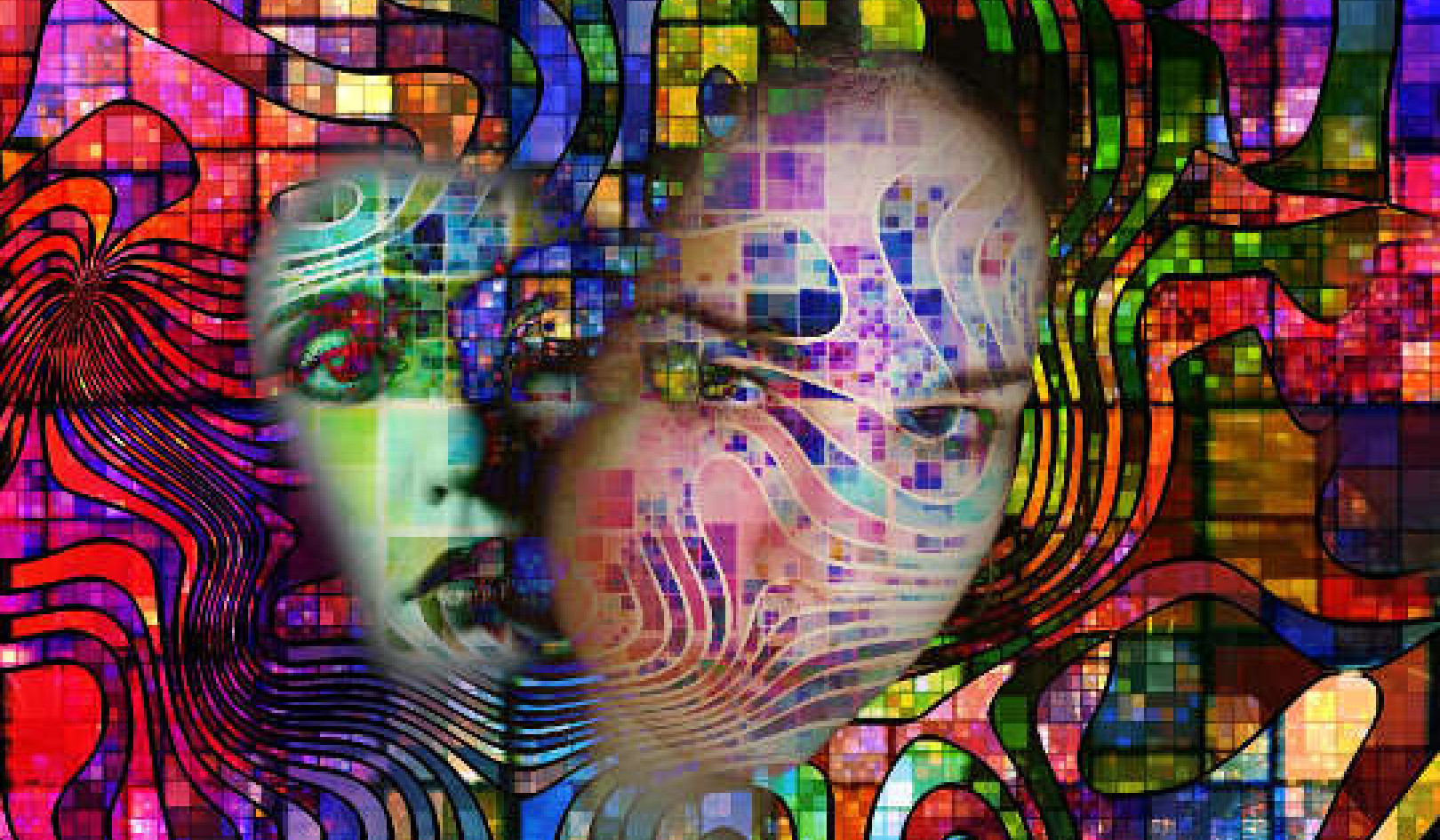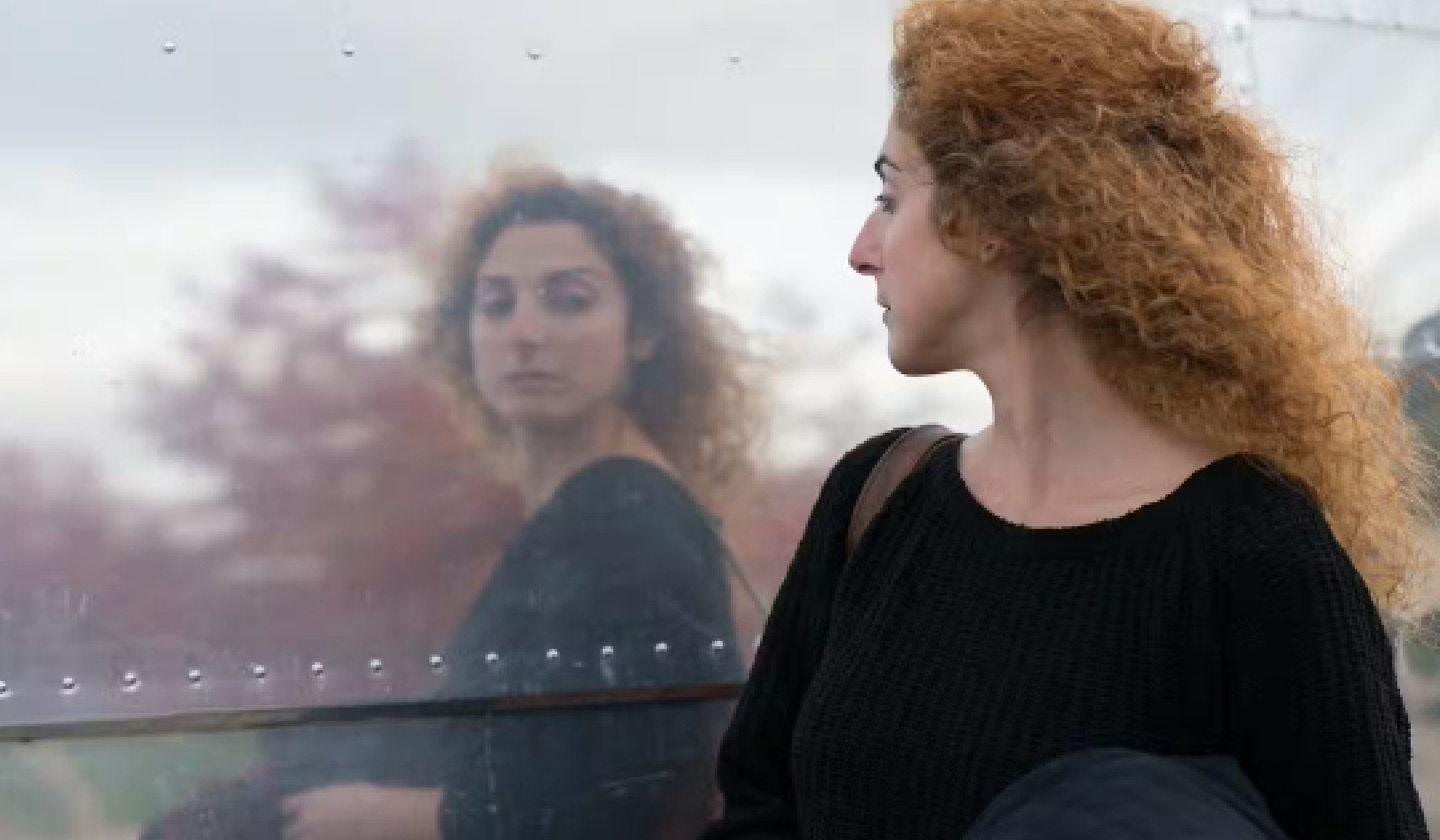
* Have you ever had a feeling something was definitely going to happen and it actually does?
* Have you ever had a dream and then seen it play out in your daily life?
* Have you ever avoided something horrible by listening to your intuition, even if you didn’t know what you were avoiding at the time?
Chances are you probably dismissed such flashforwards as coincidence, but we all have the potential to sense and change our futures. And we’ll use stories and science to help you understand how it all works.
We’ll begin with a story reminiscent of the movie Minority Report, based on the classic 1956 short story by Philip K. Dick. This was set in a world where three gifted humans called Precogs have special powers to see the future. The Precogs predict crime before it happens, so the future can be changed for the better.
If you think that kind of thing can only happen in the movies, consider one of the many accounts we have received from people who, like you, are interested in understanding how they could have received a glimpse into their future, sent to us by Gary.
“I was a travelling salesman a few years ago. I was on the road a lot. One night I had this really vivid dream. I was driving down a road I did not recognize. I passed a church and then came to a sharp corner. Before I had a chance to slow down in my dream the headlights of an oncoming car appeared in front of me. The car was traveling very fast and I woke up at the moment of impact. I was sweating and shaking. It was as if I had actually been there.
“The dream was frightening but after a few days I forgot all about it, until I found myself driving to collect a delivery down a road I had never driven down before. But it wasn’t really unfamiliar. I had seen it already in my dream. Things got really eerie when I saw the church that had appeared in my dreams and, sure enough, there was the sharp bend in the road just after the church. It was exactly how I had dreamed it. In an instant I found myself slowing right down and as I did this other car came hurtling around the corner at a crazy speed. Seconds later a police car followed in hot pursuit.
“Now, that police car hadn’t been in my dream but everything else had; the road, the church, the sharp bend and the speeding car coming around it. I truly believe that my dream allowed me to take evasive action just in time to avoid a head on collision.”
Of course, this is just an anecdote, and like every story we present to you, it cannot be verified scientifically. While we only report stories that we believe to be true, it is possible that some of them are not accurate. But on balance, these stories are important, because they give shape to how premonition feels to different people. And when you combine these premonition stories with clearly explained scientific results, you’ll have a very clear picture of what premonition is as well as how it may work.
What is premonition?
The word premonition comes from Latin roots: “prae” or “pre” (before) and “monere” (to warn). As you might figure out from the name, originally premonitions were considered to be forewarnings of negative events, but now people use the word to mean receiving any information about a future event, including positive ones.
Having a hunch that an old acquaintance will make contact, dreaming about a plane crash, feeling excited by a “knowingness” that you will win a raffle, being sure a relative that is not ill will die soon . . . these are all examples of premonitions, assuming the event you predicted does occur.
If you have any correct insight about a future event, we call that a premonition – whether that insight is an emotional one like excitement, a physical one like sweating and heart palpitations, or a cognitive one like a sense of “knowing”.
Past present
Centuries ago prophets and oracles were consulted about their premonitions. Some thought the future was fixed, but others believed it could be changed by choices made in the present; that is, by free will. This argument still rages among scientists, but most scientists believe that the future is really a set of possibilities that have different likelihoods – what will happen is not fixed, but not totally open, either.
For example, if I drop something one second, there is a high probability that in the future, the object will go in the direction of whatever the forces are that are most strongly acting on it. In other words, we’d all be very surprised if one second a ball was dropped in Switzerland and the next second it was on the moon.
On the other hand, the location of any particle in the next moment is not certain, it can only be predicted using probabilities. This uncertainty may allow a bit of tweaking to go on. And a little bit of tweaking can have a major impact, potentially producing a different result in the future – or in the past.
Retrocausality
Recent results from quantum physics experiments suggest in a mind-tangling way that a choice made in the future sometimes seems to actually cause what happens in the past. The technical term for this is retrocausality. Experiments revealing retrocausal effects suggest that whatever is going on right now is in some kind of relationship with whatever is happening in the future – and that relationship is not just in the usual forward direction.
So, as you learn about precognition and start fine-tuning your precognitive powers to sense the future, we can’t emphasize enough that this discovery process can be a surprising and sometimes difficult one. It’s critical to hold to two convictions: first, the future is not set in stone, and second, while you can likely affect it, you may not have complete power to change it in the direction you desire.
As you learn to sense the future, what you will glimpse is a potential future. Whether it plays out is up to you in addition to many other forces.
But what exactly is precognition? The difference between precognition and premonition is so subtle that for the purpose of this book we will be using the terms interchangeably. However, it is worth explaining this difference, however subtle, even though we will generally ignore this difference for the remainder of the book.
What is precognition?
In short, precognition is the scientific name for a group of abilities that have to do with knowing or using information the future without drawing on information from the five senses, memory, or logic. Premonitions are one of those abilities – a premonition is a feeling or sense about a future event. But precognition includes premonition as well as other ways of knowing, so precognition is the umbrella term that includes premonitions.
Precognition is a more scientific name for the ability to be influenced in some way by events in the future, or the ability to know information about events in the future. Anything known in this way can be called a precognition, as long as the future events you are predicting aren’t predictable using memory, logic or your five senses.
You may have heard of precognition as future vision, fortune telling, prophetic vision, or future sight. It’s using an alternative means (sometimes called a sixth sense) to tap into a source that shows or tells you what will happen in the future, or that tells you what to do now so you can move toward positive outcomes or avoid negative ones – even if you don’t know what those outcomes are.
Confusing? Yes, we know. We’ll try to sort it out with some examples.
If every Thursday you get a call from Aunt Millie, it’s not precognition to feel like she’ll call on a Thursday. If it’s raining, it’s not precognition to bring an umbrella out so you don’t get wet. If a particular subject in school is difficult for you and you haven’t studied for a test, a dream that you might fail the test would not be considered precognitive, though it might be tragically accurate!
These are examples of what precognition isn’t. What counts as precognition again? Okay, let’s start with some examples of precognitions . . . many of which would be called premonitions as well.
* For some reason, you find that you consistently have visual “flashes” of people who will be helpful for your business in the upcoming weeks. They come “out of the blue”. Some are strangers now, but you will meet them later; some are known to you. The flashes are so common and accurate that you feel confident in using them to help you build your business.
* You dream about a woman driving her new yellow car off a bridge and jumping out before the car hits the water. You wake up in a cold sweat, and you remark to your partner that the dream feels very real. You record it in your dream journal, and you comb the news to see if it was something you heard about the previous day. There was nothing like that in the news – just some stories about the economy. In the evening, you hear a newscaster describing the same incident, which happened that afternoon. There are too many correlations between your dream and the story (it’s a woman, she jumped out early, she drove off a bridge, the car was new) even though some are not accurate (the car was blue, not yellow).
* You are climbing Mount Everest. You wake up in the middle of the night and have a strong urge to pee. It’s ridiculous – you have no oxygen, it’s freezing, you are exhausted, and you could just go back to sleep and hold it in. But you decide to go. When you come back, members of your climbing team are covered in snow, hit by an avalanche. You try to save them, but you cannot, and you find yourself grateful for listening to your body, even as you mourn the loss of your team.
* Turning on your car radio, you like to play a game. What will be the lyrics of the first song you hear? You like this game because you’re correct more than you’d expect to be by chance.
* You dream that you will win the lottery, and you are given the lottery numbers. When you wake up, you write them down. Later you forget to enter the lottery, but you find out that the numbers you wrote down would have made you a winner. You curse your forgetfulness, but you are amazed at the “coincidence”.
These examples represent most of the types of precognition that people experience. While these types of experiences cover some common types of precognitive abilities, they do not represent the whole array of ways that people seem to get information about future possibilities and probabilities.
Of course, these examples could be called coincidental, and it is always possible that what you think of as a precognitive experience is actually a coincidence. Determining whether a particular type of experience is really a genuine precognition and whether a particular person has consistent precognitive skills generally requires scientific analysis and controlled tests.
©2018 by Theresa Cheung and Julia Mossbridge.
Published by Watkins, an imprint of Watkins Media Limited,.
All Rights Reserved. www.watkinspublishing.com
Article Source
The Premonition Code: The Science of Precognition, How Sensing the Future Can Change Your Life
by Theresa Cheung and Julia Mossbridge
 In this groundbreaking book, bestselling author Theresa Cheung joins forces with cognitive neuroscientist Julia Mossbridge, PhD, Director of the Innovation Lab at The Institute of Noetic Sciences (IONS). Together they reveal revolutionary new research showing that sensing the future is possible, they also provide practical tools and techniques you can use to develop your own powers of precognition.
In this groundbreaking book, bestselling author Theresa Cheung joins forces with cognitive neuroscientist Julia Mossbridge, PhD, Director of the Innovation Lab at The Institute of Noetic Sciences (IONS). Together they reveal revolutionary new research showing that sensing the future is possible, they also provide practical tools and techniques you can use to develop your own powers of precognition.
Click here for more info and/or to order this paperback book and/or download the Kindle edition.
About the Authors
 Theresa Cheung has a Masters from King’s College Cambridge and has spent the last twenty years writing bestselling books and encyclopedias about the psychic world. Two of her paranormal titles reached The Sunday Times top ten and her international bestseller, The Dream Dictionary, regularly bounces to number 1 on the Amazon dreams bestsellers chart.
Theresa Cheung has a Masters from King’s College Cambridge and has spent the last twenty years writing bestselling books and encyclopedias about the psychic world. Two of her paranormal titles reached The Sunday Times top ten and her international bestseller, The Dream Dictionary, regularly bounces to number 1 on the Amazon dreams bestsellers chart.
 Julia Mossbridge MA, PhD is a cognitive neuroscientist and director of the Innovation Lab at the Institute of Noetic Sciences (IONS) and visiting scholar in psychology at Northwestern University. She is the author of Transcendent Mind one of the first academic books to examine paranormal experiences, published by the American Psychological Association in 2016. Her research focus at IONS is precognition and the possibility of time travel.
Julia Mossbridge MA, PhD is a cognitive neuroscientist and director of the Innovation Lab at the Institute of Noetic Sciences (IONS) and visiting scholar in psychology at Northwestern University. She is the author of Transcendent Mind one of the first academic books to examine paranormal experiences, published by the American Psychological Association in 2016. Her research focus at IONS is precognition and the possibility of time travel.
Books by these Authors
at

Thanks for visiting InnerSelf.com, where there are 20,000+ life-altering articles promoting "New Attitudes and New Possibilities." All articles are translated into 30+ languages. Subscribe to InnerSelf Magazine, published weekly, and Marie T Russell's Daily Inspiration. InnerSelf Magazine has been published since 1985.

Thanks for visiting InnerSelf.com, where there are 20,000+ life-altering articles promoting "New Attitudes and New Possibilities." All articles are translated into 30+ languages. Subscribe to InnerSelf Magazine, published weekly, and Marie T Russell's Daily Inspiration. InnerSelf Magazine has been published since 1985.























